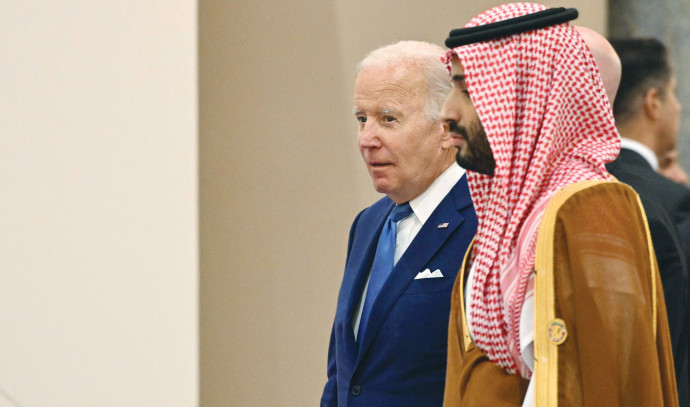Saudi Arabia will not hold up a peace deal even if Israel does not offer major concessions to Palestinians in their bid for statehood, three regional sources familiar with the talks said.
The Palestinians could get some Israeli restrictions eased but such moves would fall short of their aspirations for a state. As with other Arab-Israeli deals forged over the decades, the Palestinian core demand for statehood would take a back seat, the three regional sources familiar with the talks said.
“The normalization will be between Israel and Saudi Arabia. If the Palestinians oppose it the kingdom will continue in its path,” said one of the regional sources. “Saudi Arabia supports a peace plan for the Palestinians, but this time it wanted something for Saudi Arabia, not just for the Palestinians.”
The Saudi government and the US State Department did not respond to emailed questions about this article.
Netanyahu hails possibility of historic peace
Prime Minister Benjamin Netanyahu has hailed the possibility of a “historic” peace with Saudi Arabia, the heartland of Islam. But to secure the prize, Netanyahu has to win the approval of parties in his a far-right coalition which reject any concessions to the Palestinians.
MbS said in a Fox News interview this month that the kingdom was moving steadily closer to normalizing ties with Israel. He spoke about the need for Israel to “ease the life of the Palestinians” but made no mention of Palestinian statehood.
US SECRETARY of State Antony Blinken walks with Saudi Arabia’s Foreign Minister Prince Faisal bin Farhan during a visit to Riyadh, in June. (credit: Ahmed Yosri/Reuters)
Nevertheless, diplomats and the regional sources said MbS was insisting on some commitments from Israel to show he was not abandoning the Palestinians and that he was seeking to keep the door open to a two-state solution.
Those would include demanding Israel transfer some Israeli-controlled territory in the West Bank to the Palestinian Authority (PA), limit Jewish settlement activity and halt any steps to annex parts of the West Bank. Riyadh has also promised financial aid to the PA, the diplomats and sources said.
Palestinian President Mahmoud Abbas has said any bargain must recognize the Palestinian right to a state within the 1967 borders, including East Jerusalem, and must stop Israeli settlement building. However, all the sources said a Saudi-Israeli deal was unlikely to address those flashpoint issues.
Netanyahu has said Palestinians should not have a veto over any peacemaking deal.
Can Israel-Saudi peace deal get support of US Congress?
Yet, even if the US, Israel, and Saudi Arabia agree, winning support from lawmakers in the US Congress remains a challenge.
Republicans and those in Biden’s Democratic Party have previously denounced Riyadh for its military intervention in Yemen, its moves to prop up oil prices, and its role in the 2018 killing of Saudi journalist Jamal Khashoggi, who worked for the Washington Post. MbS denied ordering the killing.
“What’s important for Saudi Arabia is for Biden to have the pact approved by Congress,” the first regional source said, pointing to concessions Riyadh was making to secure a deal.
For Biden, a deal that builds a US-Israeli-Saudi axis could put a brake on China’s diplomatic inroads after Beijing brokered a rapprochement between Saudi Arabia and Iran, which Washington accuses of seeking nuclear arms. Tehran denies this.
“There was a sense that the US has abandoned the region,” said one diplomat. “By courting China, the Saudis wanted to create some anxiety that will make the US re-engage. It has worked.”

